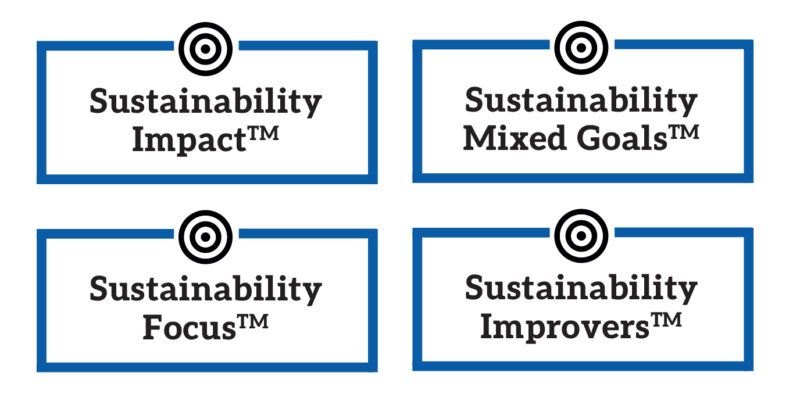The Financial Conduct Authority’s (FCA) Sustainable Disclosure Requirements (SDR) have been described as an “amazing starting point” with the potential to transform the sustainable investment space, but enthusiasm has started to wane in the industry as fund providers highlight the numerous hurdles they face in order to obtain a fund label.
From 31 July, groups can adopt the fund labels outlined in the final proposals of SDR. These are:

The labels, when announced late last year, were welcomed for ensuring investors “nail their colours to a theory of change” as to how they intend to make a difference in the world, according to James Corah, head of sustainability at CCLA Investment Management, speaking to PA Future earlier this year.
However, the reality of obtaining a label is proving more time-consuming and complex than initially thought with Corah adding: “it doesn’t feel [amazing] at the moment when I have a spreadsheet of over 100 action points we need to understand to make sure we’re ready to label a product”.
This largely echoed the sentiment across the sustainable investment space; fund managers and fund selectors are overwhelmingly positive about the overarching goals of SDR and the fund labels the FCA has developed but have found filing for a particular label challenging.
See also: SDR and the investment labelling regime: How does the industry plan to respond?
At M&G’s Impact Forum in early June, for example, their head of product governance and ESG product, Stuart Burnside, spoke about some of the key insights and challenges the firm has come across in the process of filing for ‘impact’ labels.
“I think this [SDR] is potentially incredibly helpful,” Burnside said, citing a refocused emphasis on helping consumers understand what they are buying, and highlighting the new consumer facing disclosure as a potentially very helpful new document which could help both consumers and advisers.
He also predicted a focus on compliance in the short term, but expects innovation to follow: “Am I interested in potential further product evolution? Yes. We need to get compliant now, and then product evolution comes next year and beyond.”
At the time of the forum, Burnside said they were “several weeks” through the process of filing for impact labels for their funds, predicting that the process would, industry wide, take longer than the usual 30-day approvals cycle.
When PA Future caught up with Burnside recently, he said he foresaw the challenges as an understandable feature of the early phases of new regulation.
“Using an airport analogy, I’d expect that as things bed down, we will get back to the usual approvals process of most funds being green lane and red lane being for more complex propositions. Currently we are all having our bags unpacked because there’s a need to establish precedents. Unsurprisingly, queues form and the 2 December take-off looks very close now with most of the industry still to pass through security.
“The key thing to know before we arrive at the airport is what can be in the bags – we aren’t there yet. That has to be solved by the FCA, Investment Association, firms like ourselves and our advisers all discussing how best to achieve this. This isn’t about push back, it’s about sharing ideas to make a success of the regulation. The principles are sound, but we have to solve the implementation.
“We all need to listen to each other, and solve the challenge, and when we do, it is the end retail consumer who benefits – so that is who we must keep in our thoughts throughout this process. That leads me to believe more time to get this right might well be prudent.”
As a result, he remained positive about SDR’s potential: “If you work in sustainability, you should walk the walk and care about real people. I feel personally very strongly about that. I have no problem with the regulator pushing the industry towards something this positive. And, frankly, if it’s hard, good, because that means it’s credible.”
Complexities dissuading fund managers
Likewise, Patrick Thomas, head of ESG investing at Canaccord Genuity Wealth Management, said although the labels are a useful way of thinking about a funds’ sustainable objectives questions remain around the disclosure requirements for certain labels.
“We plan to use SDR fund labels internally, particularly the ‘Focus’ label, as most of our ESG strategies fall into that basket. There’s potential for us to use these labels externally, but we have yet to conclude how we would report this,” explained Thomas.
“I think the disclosure requirements around the ‘Impact’ label, however, are onerous and might dissuade fund managers from offering these strategies. This would be a bad outcome for investors.”
Julia Dreblow, founder and CEO at SRI Services and vice-chair of a new FCA working group to build on sustainable finance across the financial advice sector, also picked up on this point, explaining the FCA has been very granular in their requests for KPIs, objectives and data points. For fund managers running a broad-based sustainable fund – who use vast amounts of information in their investment process – expecting them to publish all of this data, some of which will change over time, “just doesn’t make much sense”.
“It could inadvertently lead to mis-selling, because people may buy based on a single data point which, realistically, three years down the line could be overtaken by something else,” Dreblow continued.
“That’s not to say the fund strategy will change necessarily, but the actual data points, KPIs and metrics could change, because none of this is set in stone. It’s not like the theory is known to hold in all situations; nothing about the sustainability space stays the same, and there are constant changes and improvements to the way we do things. So, having to make constant changes to regulatory disclosures to stay on the right side of the law would be unhelpful to fund managers.
“The FCA needs to get used to disclosures being more ‘upper level’, with fund managers reporting the broad aims of their funds alongside information about those broad aims, rather than 100 different metrics, because that’s just unmanageable.”
Onus on investors to make SDR work
Corah, however, concluded with a rallying cry to the sustainable investment industry: “There’s an onus on our sector to make SDR work, and it won’t work if asset managers decide it’s just too difficult, or the boxes are just too prescriptive, or the legal risks are just too high. If we do that, we’re going to miss the opportunity to make our sector much more meaningful and make it much clearer as to what it is that we’re doing to unleash the power of the investment industry to drive change.
“Most importantly, we’ll miss the opportunity to be clear to our clients what we’re trying to achieve. It might be rough around the edges in its first couple of years. But, as a sector, we should be brave enough to try and make this new regulation work.”
Dreblow added the FCA’s intentions are positive in how they have developed the SDR label framework, even if teething issues are starting to become clearer to those beginning the process of filing for a label. Like most new initiatives, Dreblow agreed you only really find out what works and what doesn’t work when its put into practice, and further iterations are expected once the FCA hears more feedback – something she asserted the FCA are “very receptive to”.
“They’ve really been brilliant, you know, not like a typical regulator. I think they know that this is a new area, and they’ve got to just gather information at this point in time. So, that’s exactly what they’re doing.”
Additional reporting by Natalie Kenway








